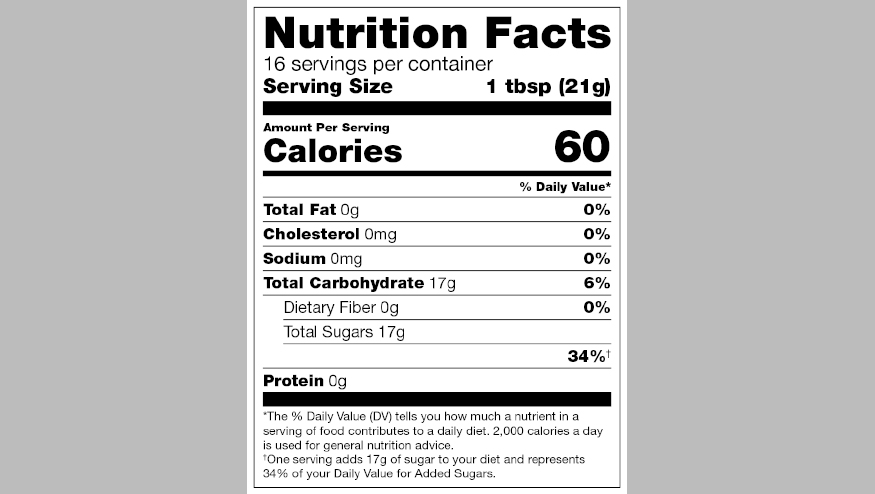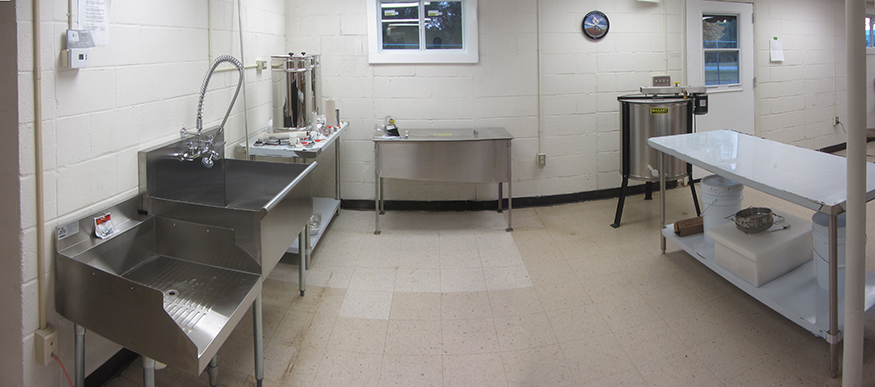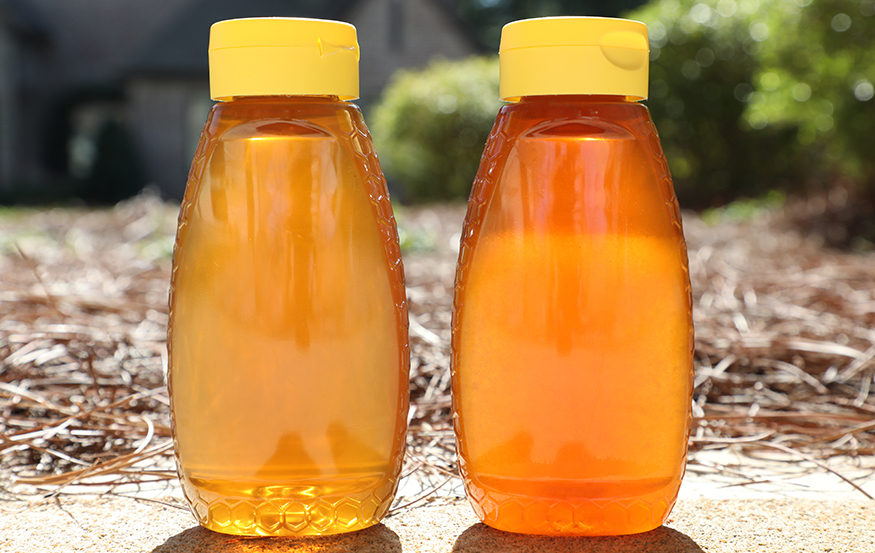Farmville Bee Yard 1,
Auburn Bee Lab Honey
A Farmville Apiary
This honey was produced by colonies maintained at the Farmville Bee Yard.
Bee Yard Specifics
Personnel Log
- Colony management: Amy Weeks and Frank Schellace
- Honey Extraction: Alex Smith, Carolina Rodriguez Quinones, and Dillon Hammell
- Honey Bottling: Noah Crockette, Alex Smith, Carolina Rodriguez Quinones, Dillon Hammell, and Blake Griffin
Moisture Content
The moisture content of this honey was 16.6% when extracted in May 2025.
Nutrition

Extracting & Bottling

This honey was extracted and bottled on campus at Auburn University’s Bee Laboratory using a 20 frame radial extractor, 18 gauge #4 polished stainless steel bottling tanks, and stainless steel coarse (1000 micron) and fine (500 micron) filters. It’s as real as you can get!
Granulation

Most honeys are supersaturated liquids, meaning they contain more sugar than what can normally be dissolved by water at room temperature. As time passes, one key sugar of honey – glucose – forms solid granules, or crystals. Granulation time is influenced by many things, including nectar source and honey bottling procedures.
In most cases, granulated honey is perfectly fine to consume. When left over an extended period of time, only the topmost water layer of granulated honey is susceptible to spoilage since it may consist of more than 18.6% water. Granulated honey can be reliquified by applying a slow, gentle heat, for example by using a hot water bath.
But, granulated honey can be eaten just as it is. In fact, granulation is considered by some to be an indicator of pure honey! So, eat up!
Botulism Warning
Botulism is a rare, yet serious, illness caused by a toxin produced by some bacteria. Spores of the bacteria can be found in many places, like soil and dust. Because honey can contain bacteria that cause infant botulism, please do not feed it to children younger than 12 months.
For reasons still not well known, individuals older than 12 months are NOT vulnerable to bacteria spore germination and subsequent toxin production. For more information, visit the CDC.
HONEY INFO FROM PAST YEARS
2023 Farmville Honey
- Colony management: Clint Wall and Emma Breda
- Honey extraction: Nick Vinson, Philip Schulte, and Emma Breda
- Honey bottling: Philip Schulte, Skyler Demi, Nick Vinson, Reese Houck, Rachel Jacobsen
Moisture Content
The moisture content of this honey was 18.5% when extracted in 2023.
2022 Farmville Honey
Personnel Log
• Colony management: Clint Wall
• Honey extraction: Clint Wall and Trey Ingram
• Honey bottling: Rachel Jacobsen
Moisture Content
The moisture content of this honey was 16.5% when extracted in July 2022.
Research
Teaching
Team
Publications
Honey & Sales
Contact
Geoffrey Williams
Associate Professor
301 Funchess Hall
Auburn, AL 36849
334-844-5068
williams@auburn.edu

